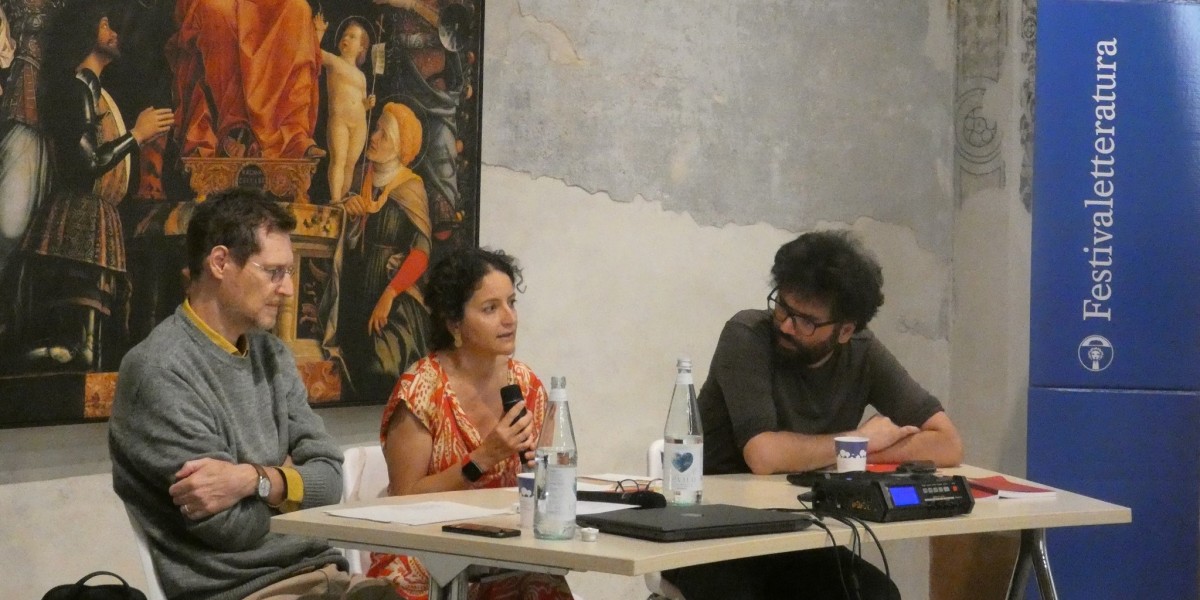
A lucid analysis of poetry and the role of intellectuals.
The frescoed walls of Mantua's church of Santa Maria della Vittoria create a cool oasis in the hot summer afternoon. A perfect setting to talk about poetry. But today’s event is not about presenting a new author or a new book. The large audience is here to listen to a deeper and more precise analysis of the concepts of poetry, literary criticism, and, most importantly, the role of intellectuals in today’s society.
The difficult topic is directly tackled right from the start: the poets Paolo Febbraro and Matteo Marchesini each read five of their poems. The hall is full, but it seems void as utter silence takes over. The words pronounced by the authors feel solemn and prophetic, loaded with deeper meaning waiting be discovered.
When the reading is over, essayist Chiara Fenoglio takes the floor, reflecting on the need to rediscover the critical poet. This literary figure represents the human need for discovery, for confrontation with others, for curiosity, and for continuous wandering between two different states of being. Today’s poets should become new cultural fulcrum, capable of asking non-stereotypical questions, open to interactions with other languages and codes, becoming another voice in the ancient ensemble of human poetry. Fenoglio's speech engaged the audience and stimulated lively interventions from the two authors.
Fabbro spoke of the desire to discover the causes of unease, in a social context that usually doesn’t allow artists to do this. He sees literary criticism as a necessity to understand whether a writer’s words can be considered poetry or not. On the other hand, Marchesini highlighted the current tendency to exclude famous poets of the 20th century from literary criticism. Both agreed on the need to encourage and rebuild a culture of peer debate between intellectuals and poets, which is currently lacking.



